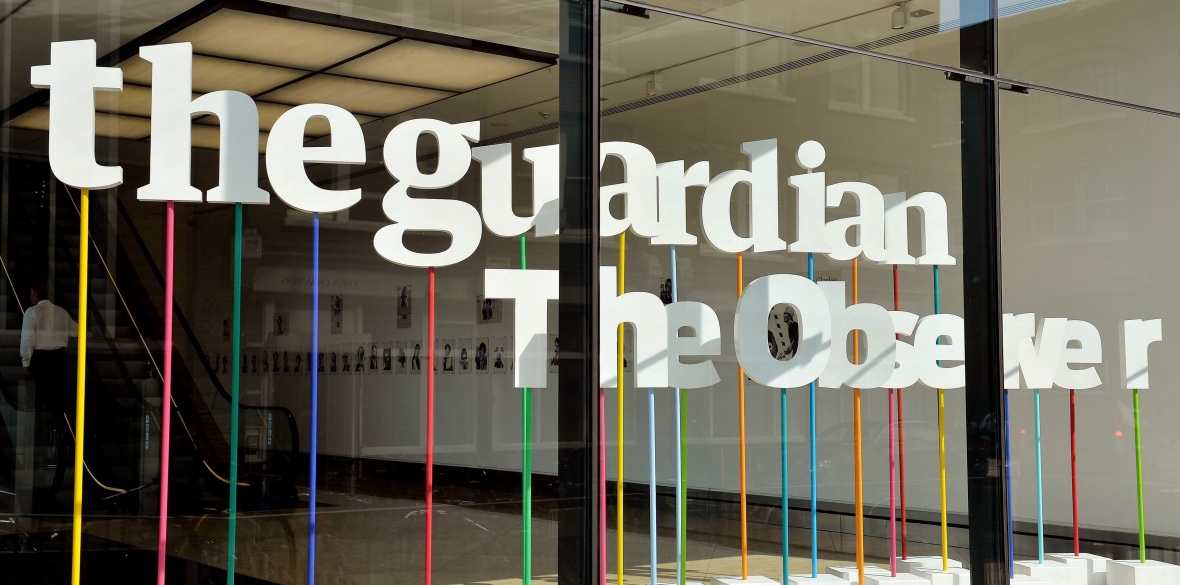This is the last article you can read this month
You can read more article this month
You can read more articles this month
Sorry your limit is up for this month
Reset on:
Please help support the Morning Star by subscribing here
DISSATISFACTION with the coverage of the Labour Party by the mainstream media is not a new phenomenon. Misleading headlines and downright lies have been an occupational hazard for Labour supporters, stretching back to 1924 and beyond, when the Daily Mail published the fraudulent “Zinoviev letter,” four days before a general election.
But when I joined the Labour Party in 1976, there were certain mainstream outlets which had a reputation for fairness and balanced reporting.
The Guardian was one such publication and I used to luxuriate over reading it after it was recommended to me by longstanding party members.
I remember having my leg pulled by my workmates on the building sites, where I was employed as a young bricklayer, for reading what they saw as an alien broadsheet.
I used to take great pride in telling them that the Guardian was about the best mainstream newspaper around for coverage of the Labour Party — I hadn’t been introduced to the Morning Star back then.
How times change! During the intervening years, I’ve seen the Guardian take a number of disappointing twists and turns, but I have stuck with it through thick and thin.
Even today, it still has several excellent progressive commentators, but much of its reportage of Labour Party affairs since Jeremy Corbyn was elected leader have left a lot to be desired.
So, does it surprise me that calls to boycott the Guardian were trending on Twitter last week? No, not really.
The narrowing of acceptable opinions in the mainstream media has enabled the Guardian to retain a left-wing veneer that it no longer deserves.
Social media has provided a platform to highlight why the Guardian has fallen from grace with so many of its previously loyal readers like me.
By way of example, a report by the Media Reform Coalition last month found that the Guardian, along with the BBC, topped the charts for inaccuracies in the reporting of Labour and anti-semitism.
The liberal-leaning paper and the public broadcaster narrowly beat the Sun.
According to the report, nearly half of the Guardian’s coverage of the controversy featured no quoted sources defending the party or its leadership and it has been “considerably more imbalanced in terms of sourcing compared to the BBC and Independent.”
The Guardian’s displeasure with the Labour Party under Jeremy Corbyn has form. Research by the London School of Economics from 2016 found that one-fifth of their stories on Corbyn lacked balance.
That, for me, is putting it mildly.
As early as August 2015 the Guardian readers editor Chris Elliott pointed out that “readers rightly got a sniff that on occasions we weren’t taking [Corbyn] seriously enough.” But it got worse.
The paper’s notoriety for hostility towards Labour has largely stemmed from its comment pages. Here, for example, regular readers will have plotted Polly Toynbee’s journey commentary on Corbyn which began with denial (“a relic”), lingered in paternalism of the “you don’t know what you’re doing” variety, before straying into anger and grief (“sluggish incompetence”) and (“Labour’s annihilation”) to quote a tiny sample. I’m not sure what stage Toynbee, or the rest of them, are at today — I’ve lost interest.
This commentary, according to the same LSE research, is in a context in which almost 60 per cent of the overall press coverage of Corbyn was either critical or antagonistic, compared with less than 10 per cent which was positive. And yet we’re talking about the very same man who, last year, helped Labour deliver its biggest vote share increase since 1945.
I doubt I’m the only one who’s grown frustrated. In 2015, the Guardian’s own research found that 24 per cent of its core readership were either Labour members or registered supporters and this was before the Corbyn surge. Following Corbyn’s two landslide leadership victories, how many of those readers have gone elsewhere?
More than a handful will have turned to the online news source The Canary, whose reporting of Labour is typically sympathetic and balanced.
Yet journalists at the Guardian protested last week about the news that The Canary editor Kerry-Anne Mendoza would be delivering the Claudia Jones Memorial Lecture for Black History Month.
So is the Guardian boycotting The Canary? And was it not just a couple of weeks ago that we heard the outcry from Guardian journalists when Momentum announced it would ban the Sun from its fringe events at the Labour Party Conference in Liverpool?
Liverpool is a city where every other black cab brandishes large “boycott the Sun” stickers because of the paper’s infamous reporting on the Hillsborough disaster.
What to make of all this? Personally, I haven’t boycotted the Guardian, but I’ve stopped reading it as much as I used to. Instead I’ve adopted the practice of mindfulness.
On the occasions when I feel a little stressed I take a deep breath and think about letting go of the Guardian. I simply let Polly Toynbee, Jonathan Freedland and all the other naysayers wash over me and, as I exhale, I let their utter irrelevance leave my body and mind. It’s like a fog has lifted.
On the doorstep in Derby North, I used to recommend the Guardian to enthusiastic supporters — not any more.
These days, I suggest an array of online media outlets. To those with the resources I promote subscription to Novara Media and the newly refounded Tribune magazine and I encourage people to pick up a copy of the Morning Star.
Together with veganism and voting Labour, it’s my top tip for reducing stress and living a long and healthy life.
Chris Williamson is Labour MP for Derby North.











